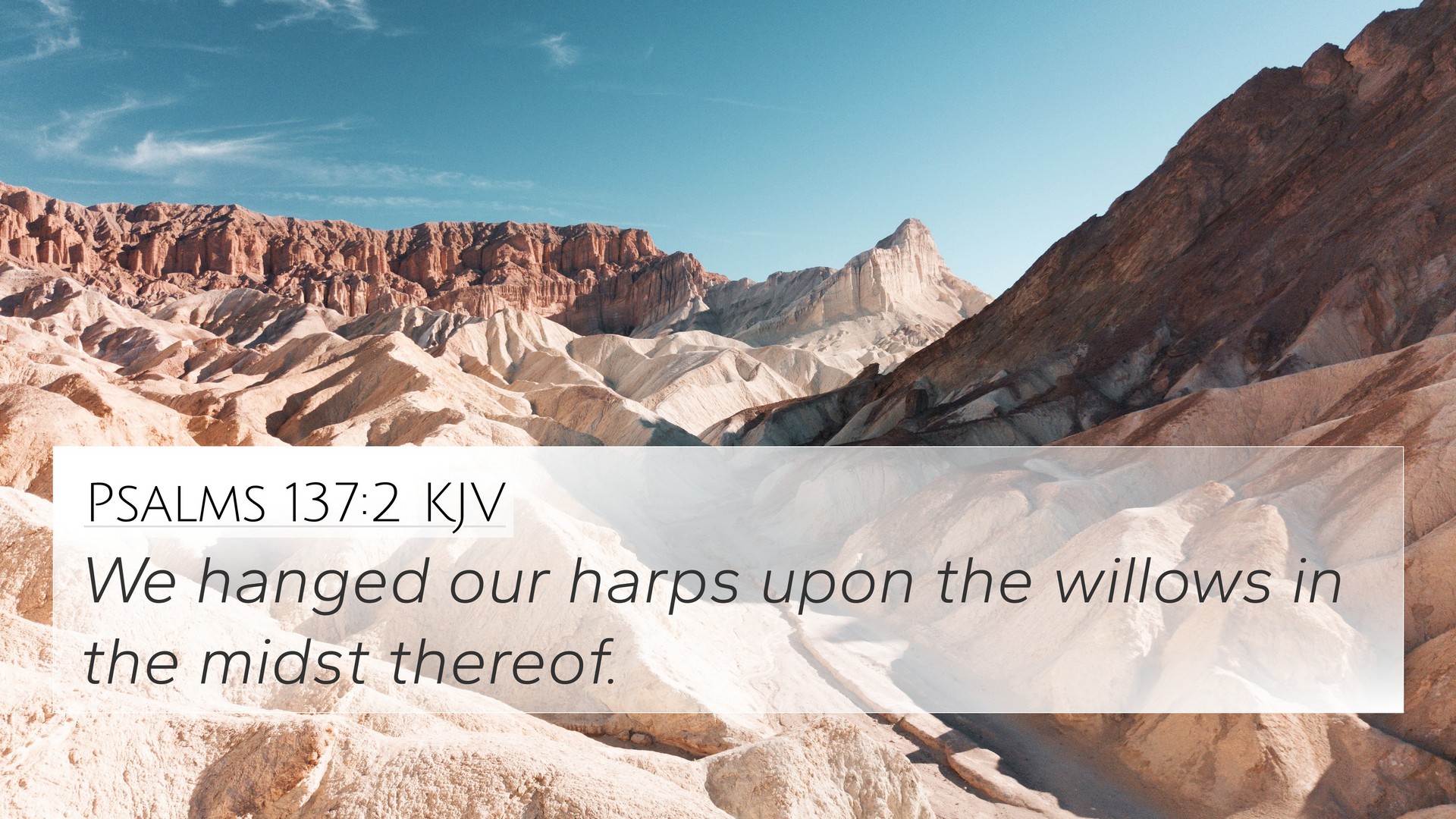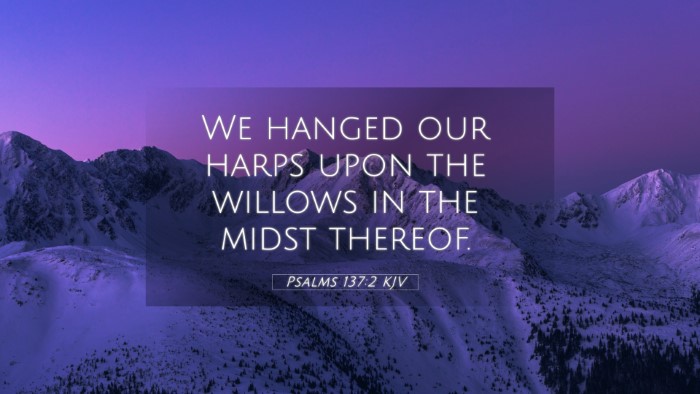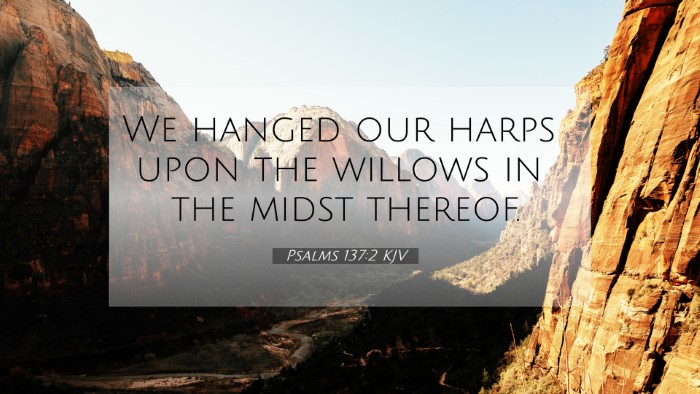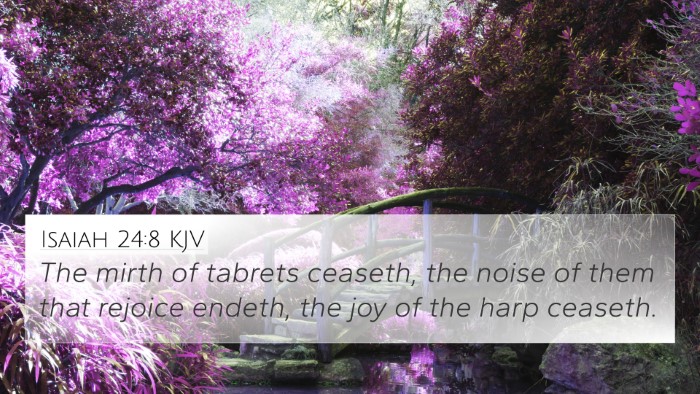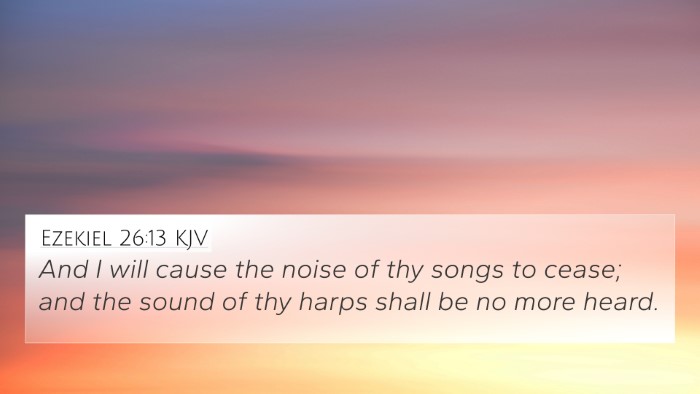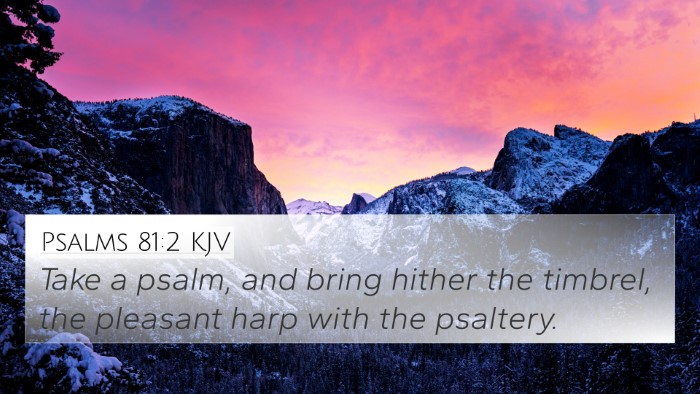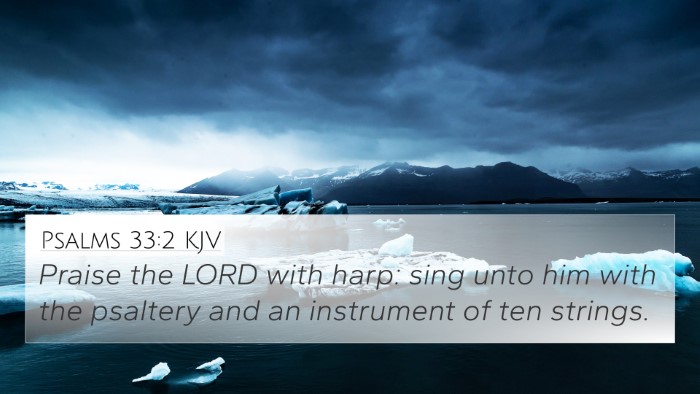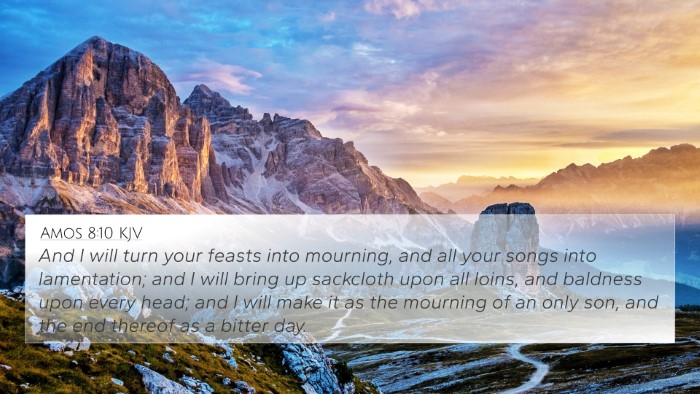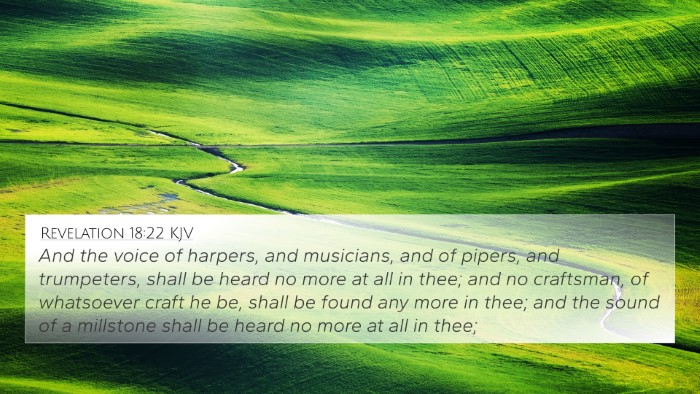Psalms 137:2 - Meaning and Interpretation
Bible Verse: Psalms 137:2
Verse Text: "We hung our harps upon the willows in the midst thereof."
Overview
Psalms 137 is a poignant lament expressing the sorrow and despair of the Israelites during their Babylonian exile. Verse 2 specifically illustrates their profound sense of loss and hopelessness, as symbolized by their harps hung on the willows.
Commentary Insights
Matthew Henry's Commentary
Matthew Henry highlights that the harps represent the joy of worship and musical expression that the Israelites could no longer partake in due to their captivity. The willows, as a natural setting, denote a place of desolation, emphasizing their mournful state. Henry suggests that this imagery serves to underline the deep emotional turmoil faced by the captives, contrasting the joyful worship they experienced in Zion with the lamentation of exile.
Albert Barnes' Notes on the Bible
Albert Barnes remarks that hanging the harps is a metaphor for surrendering one's joy and hope. He notes that the Israelites were not only physically removed from their homeland but also emotionally detached from their identity as worshippers of Yahweh. Barnes explains that this act of hanging the harps reflects a refusal to sing in a foreign land, suggesting an ultimate loss of cultural and spiritual identity.
Adam Clarke's Commentary
Adam Clarke elucidates the imagery of the willows, describing them as typically associated with mourning and sadness. He posits that the act of hanging harps on these trees highlights a withdrawal from the beauty of music and the joy of celebration that the Israelites once knew. Clarke further emphasizes the significance of culture and music in the life of the Israelites, noting that the prohibition against musical expression during this time signified their deep sorrow and longing for Jerusalem.
Thematic Connections
This verse connects deeply with themes of exile, loss, cultural identity, and spiritual desolation. It is a profound example of how the Israelite experience during captivity mirrors the human condition of loss and separation from what is cherished.
Cross References
- Psalm 42:4: "When I remember these things, I pour out my soul in me: for I had gone with the multitude, I went with them to the house of God, with the voice of joy and praise, with a multitude that kept holyday." - Reflects the yearning for worship.
- Psalm 137:1: "By the rivers of Babylon, there we sat down, yea, we wept, when we remembered Zion." - Illustrates the immediate context of sorrow.
- Ezekiel 33:10: "Therefore, O thou son of man, speak unto the house of Israel; thus ye speak, saying, If our transgressions and our sins be upon us, and we pine away in them, how should we then live?" - Captures the collective lament of the Israelites.
- Lamentations 1:1: "How doth the city sit solitary, that was full of people! how is she become as a widow!" - Relates to the theme of desolate cities.
- Isaiah 40:1-2: "Comfort ye, comfort ye my people, saith your God." - Provides a promise of future consolation.
- Psalm 69:12: "They that sit in the gate speak against me; and I was the song of the drunkards." - This verse parallels the experience of ridicule faced while in captivity.
- Matthew 5:4: "Blessed are they that mourn: for they shall be comforted." - Offers a hopeful perspective on mourning.
- Revelation 21:4: "And God shall wipe away all tears from their eyes; and there shall be no more death, neither sorrow, nor crying, neither shall there be any more pain: for the former things are passed away." - Promises the end of suffering.
- Luke 6:21: "Blessed are ye that hunger now: for ye shall be filled. Blessed are ye that weep now: for ye shall laugh." - Encourages faith through sorrow.
- Romans 8:18: "For I reckon that the sufferings of this present time are not worthy to be compared with the glory which shall be revealed in us." - A reminder of the hope amidst suffering.
Conclusion
Psalms 137:2 serves as a sobering reminder of the depths of despair felt by a people in exile, longing for their homeland and the joy of divine worship. This verse invites readers to consider the broader implications of loss, identity, and the human need for connection to heritage and faith. Through the lenses of various commentaries, one can see the rich, interwoven narrative of sorrow and future hope expressed not only in this Psalm but throughout the Biblical text, showcasing the power of scriptural cross-referencing and thematic connections.
